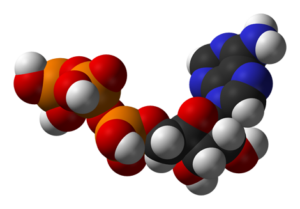Everything’s Fine, But You Still Don’t Feel Right?
The role of micronutrients in our bodies.
By Jessica Marshall, RD
“All the tests are normal. The labs seem fine. And you still don’t feel okay?” quizzed the doctor. In our current world, the situation you just read is becoming more and more common. One possibility to consider is the deficiency or excess of micronutrients in your body. Micronutrients are the vitamins and minerals in our bodies that support the chemical reactions our cells need to function. In broader terms, a nutrient is a material in food and beverages that is essential to human survival. The nutrients needed to sustain life are carbohydrates,

Micronutrients can impact your health
proteins, fats, vitamins, minerals, and water.
What has happened to our bodies in this new world?
As the world has relied upon technology and global movement of food, this modernization has made it apparent that many of our nutrient levels have declined or have been displaced. Changed farming practices, invention of cross breeding and gene splicing, less time being spent in the kitchen, and our stationary nature might all play a role in our declined nutrient status. We are living longer, but is the quality of our health better?
Say more about micronutrients!
They are called micronutrients (vitamins and minerals) because our bodies need them in small amounts to support the chemical reactions our cells need to function. Our bodies were meant to obtain them from our food or supplements, however, when our food supply or our food choices don’t provide enough micronutrients we see significant declines in our health.
It’s important to understand that all micronutrient deficiencies aren’t just a reflection of our diet. From a biochemical and genetic standpoint, we are discovering just how unique each person is in nutrition adequacy. Consider that biochemical individuality, genetic predisposition, how we absorb and metabolize food, our age, our disease conditions, and our medications can all impact our nutrient levels in one way or another.
Does testing my micronutrients really work?

It’s not always about your diet with micronutrients, it’s about how you absorb it.
For someone not feeling their best when all other labs are normal, it might be beneficial to take a look at their cellular nutrient status for more answers. Many common diseases also have some underlying nutrient imbalances. Arthritis, Parkinson’s, behavioral disorders, cancer, cardiovascular disease, chronic fatigue, macular degeneration, diabetes, immune disorders, MS, strokes, and osteoporosis have all been found to have some type of link to nutrient imbalances. The Spectracell Company is pioneering a new way of testing to look at one’s micronutrient status. Their micronutrient test measures specific vitamins, minerals, antioxidants, and other essential micronutrients within one’s white blood cells and not just in the serum of the blood that reflect current diet intake. This test will show long term cell status of the micronutrients that might not be detected by standard serum tests. Thus, the white blood cells or lymphocytes can provide a history of information rather than a quick snapshot in time of a person’s nutritional levels.
Studies published in 2002 in the Journal of the American Medical Association confirm the nutrient deficiencies and disease processes connection. Deficiencies can often slow down the healing process of the disease state.
How Can New Directions Nutritional Services Help?
Anyone can be deficient or have an excess. Even the most health-conscious person eating a very nutrient dense diet may experience a deficiency. It’s not just about what you eat anymore than it is about what you digest and absorb. Achieving optimal health is a multi-factorial issue. Spectracell is one tool used in functional medicine to direct treatment towards healing. If you aren’t feeling your best, Spectracell may be able to increase your health outcome too. It can bring us one step closer to healing.
Our nutritionists will help you start the process of getting tested for micronutrients. It could be part of the answer you have been looking for. Call us now! (see right column for the practice’s phone number)
